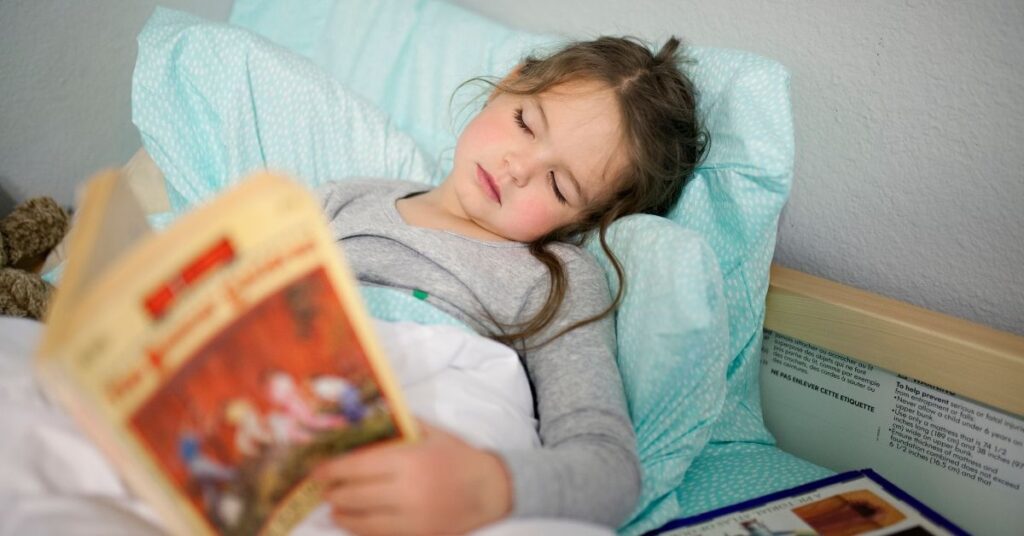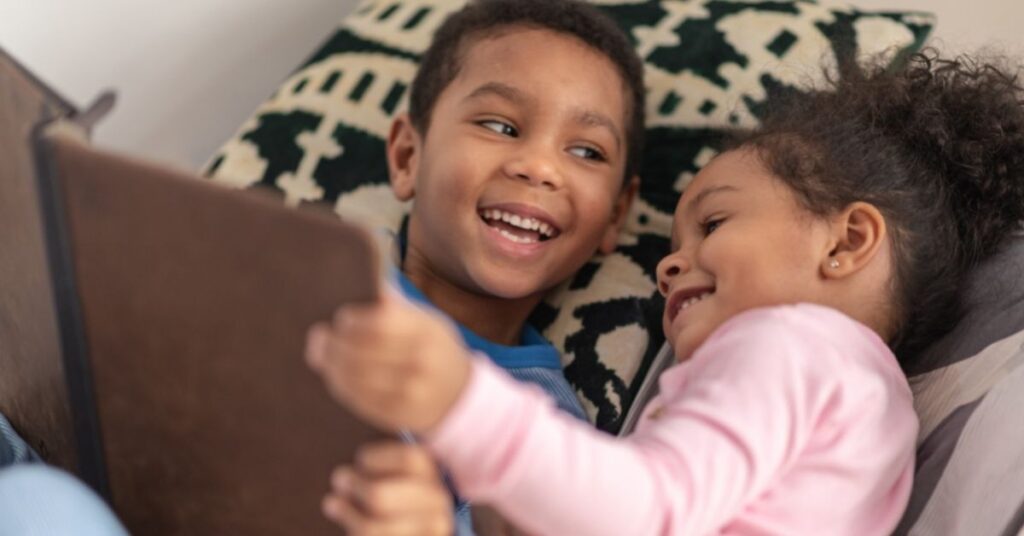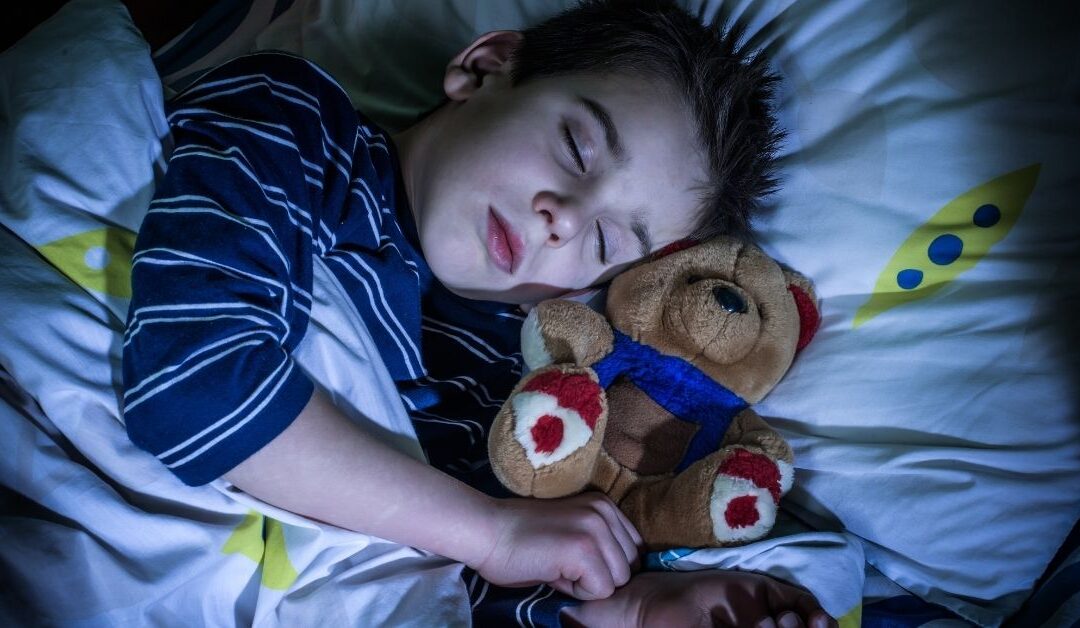Sleep is so important for our health and overall well-being. Unfortunately, sleep can be a real struggle for people with autism and ADHD. As a parent of an autistic/ADHD child, it can be challenging for us too because if our child is not sleeping well, usually we are not either. That can be difficult for the whole family. So what can you do to help your child with autism and ADHD sleep better?
Our sleep story
Our son J has struggled with sleep since he was a baby. During my maternity leave, I remember walking him in the stroller for 45 minutes at a time just to get him to take a nap. Thankfully, our babysitter found a way to get him to nap consistently during the day at her house once I went back to work.
Over the years, we tried all kinds of bedtime routine changes and herbal and medication options. Some worked okay for a while, but other attempts weren’t helpful at all. That meant that sleep was better on some nights than others. Bedwetting was an issue for J and that certainly would wake him up at night.
J is now a teenager and still has difficulty sleeping. He sleeps better now than he ever has. At times though, I will find him awake and sitting in the living room in the morning, saying he wasn’t able to sleep, despite taking the medication. It is frustrating because I know it affects his ability to concentrate in school (he has enough challenges with the ADHD!), makes him feel sickly and reduces his quality of life.
Common sleep issues for autism and ADHD

Why is it so hard for our children with autism and ADHD to achieve good sleep? While experts do not know the exact causes of sleep problems in people with autism and ADHD, they’ve linked it to a few reasons:
- Many autistic/ADHD children have additional health conditions such as depression, anxiety, epilepsy or gastrointestinal problems. Some of these also are known to impact sleep negatively, causing insomnia and other sleep issues.
- Some children with autism and ADHD take one or more medications. For those who take stimulants for ADHD, insomnia and disrupted sleep are among the known side effects.
- Studies show that some autistic children experience what is called “inverse melatonin production.” That means this hormone that helps us fall asleep at night is produced at greater quantities in the morning instead of night-time for some people with autism. This effects their sleep-wake cycle.
- Children with autism are more likely to wet their beds at night than neurotypical children. This also interferes with their sleep.
Some of the most common sleep issues associated with both autism and ADHD include:
- Insomnia
- Fragmented sleep
- Early waking
- Bedtime anxiety
- Difficulty waking up
- Nightmares and/or night terrors
- Sleepwalking
- Restless Legs Syndrome
- Sleep apnea
- Shorter sleep time
- Excessive daytime sleepiness
- Delayed sleep-wake patterns (tendency to get tired much later and then want to sleep in later)
Bedtime routine reboot
If your child is struggling with sleep issues, the first place to start usually is the bedtime routine. When J was younger, we had some success with him sleeping better after some bedtime adjustments.
Sleep experts recommend the following for bedtime:
- Establish a healthy bedtime routine for your child. For example, try a bath, quiet time, brushing teeth and then reading time before lights out.
- Ensure your child’s sleep environment encourages good slumber. It should be dark and cool. If your child is scared of the dark, then use a night light in their room that will not keep them awake. (Some night lights are too bright, so make sure you find one that doesn’t light up the room too much.)
- Help your child learn to fall asleep on their own. This can be tough if your child is afraid of the dark or wants to be cuddled as they fall asleep. However, this is essential to your child learning to sleep well.
- Dress your child in soft, comfortable pajamas for bed. If their bed clothing is itchy or uncomfortable, your child most likely will stay awake.
- Enforce a quiet time for an hour or more before bed. This helps to ensure your child won’t be overstimulated before going to bed. The activity will keep them awake.
- Encourage physical activity during the day. The more active your child is throughout the day, the more likely they will be to sleep better at night.
- Keep electronics out of your child’s room. The American Academy of Pediatrics recommends that no televisions or other electronics be placed in children’s bedrooms. At night, have your child leave their phone, tablet or handheld gaming device in another part of the house when they go to bed.
- Avoid giving your child any food with caffeine in it during the evening hours.
- Feed your child dinner at a time when they won’t be hungry at night, yet it gives their systems enough time to digest their food so they don’t feel too full and can eliminate their bladder and bowel before going to bed.
- Help your child feel less anxious at bedtime by talking about worries or fears earlier during the day.
- Assist your child with quieting their mind with relaxing techniques such as deep breathing and progressive relaxation exercises.
Treatments for sleep problems

While changes to the bedtime routine are probably best to help your child sleep, there are some treatments available if those don’t work alone.
- Melatonin supplements can help some children fall asleep. If you want to try these, make sure you talk to your child’s doctor first and follow their directions.
- Some doctors will prescribe certain medications to help children sleep better. Talk to your child’s doctor about what medicine could help your child. Note that your child could be referred to a psychiatrist for medication management.
- Some parents have found that weighted blankets (affiliate link) help their child sleep better.
- If you believe your child has sleep apnea, talk to your child’s doctor right away. They may refer your child to a neurologist or other specialist for diagnosis and treatment.
Sleeping well is essential for our body and minds. If your child has trouble sleeping, try the bedtime routine changes first. Talk to your child’s doctor if those don’t help enough to make sure your child is examined for any underlying condition or for treatment of sleep.
Does your child with autism and ADHD have difficulty with sleep? What has worked well for your child to sleep better? Leave a comment so that we can share and encourage one another on this journey!








